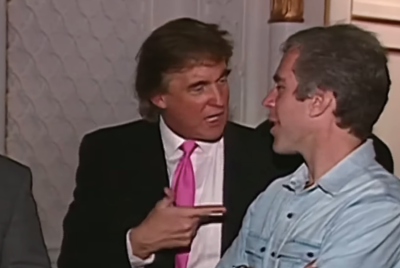Carla Hayden Fired: What Is A 'Librarian of Congress' and How Much Does The Role Make
The removal of history's first female and first Black Librarian of Congress has placed the job in national spotlight

Without assigning any reason, US President Donald Trump has removed Dr Carla Hayden from office as Librarian of Congress sending shockwaves throughout the literary and political circles.
The sudden removal of history's first female and first Black Librarian of Congress has placed the job in the national spotlight with many Americans questioning the decision about termination of very highly respected role that coordinates country's most extensive repository of knowledge.
From Baltimore to the Capitol: Hayden's Journey
Hayden's story has been remarkable. A librarian who stood up to the Patriot Act? That takes guts. Before her landmark appointment by Obama in 2016, she ran Baltimore's Enoch Pratt Free Library for over two decades. During the 2015 Baltimore unrest, while businesses around her shuttered, she kept the library's doors open as a community sanctuary.
'People who look like me were forbidden by law to learn to read,' she once said about her historic role. Something poetic about that, isn't there? The descendant of those once denied literacy becoming guardian of the nation's most prestigious collection of knowledge.
So What Exactly Does This Job Entail?
Here's the thing about the Librarian of Congress—it's not just shushing people in reading rooms.
The job puts you in charge of the world's largest library (we're talking 170+ million items), gives you control over the US Copyright Office, and lets you handpick the US Poet Laureate. Remember when we all started using digital music differently? The Librarian influences decisions about fair use in the digital realm.
Until recently, once you got this gig, you were set for life. Literally. The position had no term limit until 2015, when Congress changed it to a 10-year appointment. Hayden was the first to serve under these new rules—though she won't complete her full term now.
The White House Sends an Email
'Your position as the Librarian of Congress is terminated effective immediately,' wrote Trent Morse from the White House personnel office in email on 8 May.
Yesterday's firing came without ceremony. No press conference, no formal announcement—just an email thanking her for her service. Democrats immediately cried foul.
'This move undermines the foundational principles of our democracy and erodes public trust in our institutions. The Trump Administration must provide a transparent explanation for this decision. I urge my colleagues in Congress-especially the Republicans who benefited from Dr Carla Hayden's work-to stand united in defending the integrity of the Library of Congress,' said House Appropriations Committee Ranking member Rosa DeLauro. She called the dismissal 'an affront to her historic service' and 'a direct attack' on the library's independence.
Meanwhile, Republicans have kept notably quiet. No statement from the White House explaining why a respected librarian was suddenly shown the door. The silence speaks volumes in Washington's typically noisy echo chamber.
What Happens to the Library Now?
That's the million-dollar question hanging over Capitol Hill today. Trump will nominate someone new, who'll need Senate confirmation. Will it be a professional librarian (as Hayden was) or a political appointee? History suggests it could go either way.
Whoever takes the reins inherits an institution at a crossroads. Libraries everywhere are reimagining their role in the digital age, and the Library of Congress—our library—sits at the center of that transformation.
As Washington processes yet another high-profile firing, the rest of us are left to wonder: when did libraries become political battlegrounds, and what does that mean for the future of information in America?
Some things should transcend politics. Many thought the Library of Congress was one of them. Her firing proved otherwise.
© Copyright IBTimes 2025. All rights reserved.





















